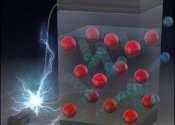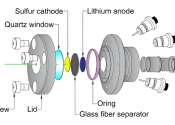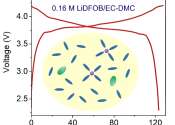Surprising discovery could lead to better batteries
A collaboration led by scientists at the U.S. Department of Energy's (DOE) Brookhaven National Laboratory has observed an unexpected phenomenon in lithium-ion batteries—the most common type of battery used to power cell ...
Jan 12, 2018
4
761









